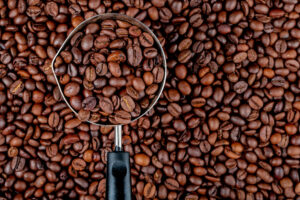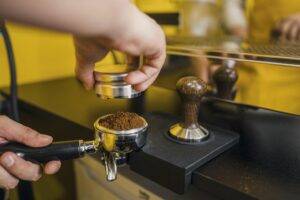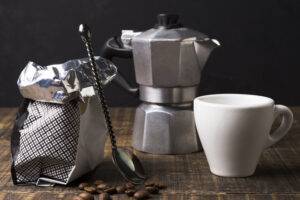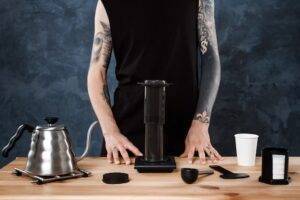
10 Reasons Your Coffee Tastes Weak and What to Do about It
Coffee is an integral part of many people’s daily routine. It’s what helps kick start their day, and for some, it’s what keeps them going. However, there are times when your coffee might taste weak or lack the bold flavor you’re used to. There could be several reasons why this is happening. In this blog post, we will explore the top 10 reasons your coffee tastes weak and what you can do about it.
Using the Wrong Coffee to Water Ratio
The coffee to water ratio is critical to making a good cup of coffee. If you use too little coffee, the result will be a weak, bland coffee. On the other hand, if you use too much coffee, it will be too strong and bitter. The ideal coffee to water ratio is 1:15, which means 1 gram of coffee for every 15 milliliters of water. You can adjust the ratio based on your personal preference, but make sure not to stray too far from the ideal ratio.
Using Old or Stale Coffee
Coffee beans are at their best when they are freshly roasted. Over time, the flavor and aroma of coffee beans start to degrade, and the coffee will taste weak and flat. It’s important to use freshly roasted coffee beans to get the best flavor. Check the roast date on the coffee bag and make sure it’s within two to three weeks of the current date.
Not Using Enough Coffee
If you’re using the right coffee to water ratio but your coffee still tastes weak, it could be because you’re not using enough coffee. Try increasing the amount of coffee you’re using and see if it makes a difference. You can also try using a coffee scale to measure the amount of coffee you’re using to ensure accuracy.
Using a Coarse Grind
The grind size of coffee beans is critical to the flavor of the coffee. If you’re using a coarse grind, the coffee will taste weak because the water doesn’t have enough time to extract the flavor from the beans. Try using a finer grind size to get a stronger, bolder flavor.
Using Tap Water
The quality of water you use to brew your coffee can also affect the taste. If you’re using tap water, it could be the reason your coffee tastes weak. Tap water contains minerals that can affect the flavor of the coffee. It’s best to use filtered or bottled water to ensure the best flavor.
Not Cleaning Your Coffee Maker
If you’re not cleaning your coffee maker regularly, it could be affecting the flavor of your coffee. Over time, mineral buildup can accumulate in the coffee maker and affect the taste of the coffee. Make sure to clean your coffee maker regularly to prevent this from happening.
Using the Wrong Brewing Method
Different brewing methods can result in different flavors of coffee. If you’re using the wrong brewing method for the coffee beans you’re using, it could result in a weak, bland coffee. Make sure to research the brewing method that works best for your coffee beans to get the best flavor.
Using Low-Quality Coffee Beans
The quality of the coffee beans you use can also affect the flavor of your coffee. If you’re using low-quality beans, the coffee will taste weak and flat. Invest in high-quality beans to get the best flavor.
Using a Dull Grinder Blade
If you’re using a dull grinder blade, it can result in an uneven grind size, which can affect the flavor of the coffee. Make sure to sharpen your grinder blade regularly to ensure an even grind size.
Storing Your Coffee Improperly
Exposure to air is the most common reason why coffee goes stale quickly. Coffee beans contain oils that are vulnerable to oxygen exposure, which can result in rancidity and a bitter taste. Store your coffee in an airtight container to prevent exposure to air.
FAQs
Q: Why does my coffee taste weak?
A: There are many potential reasons why your coffee may taste weak, including using too little coffee grounds, using old or stale coffee beans, using water that is too hot or too cold, or not allowing the coffee to brew for long enough.
Q: How can I tell if my coffee is weak?
A: Weak coffee will generally have a watery taste and a lighter color than normal coffee. You may also notice that it doesn’t have the strong aroma or bold flavor that you expect from a cup of coffee.
Q: What is the ideal ratio of coffee to water?
A: The ideal ratio of coffee to water is generally considered to be about 1 to 2 tablespoons of coffee grounds per 6 ounces of water. However, this can vary depending on personal taste preferences and the strength of the coffee beans you are using.
Q: What should I do if I’ve been using too little coffee grounds?
A: If you’ve been using too little coffee grounds, try increasing the amount you use by a tablespoon or two at a time until you find the right balance. You may also need to adjust your brewing time or water temperature to get the best flavor.
Q: How can I tell if my coffee beans are stale?
A: Stale coffee beans may have a dull or flat taste and a stale aroma. They may also appear dry and brittle or have a grayish color. If your coffee beans have been sitting in your pantry for several months or more, they may be stale.
Q: What can I do if my coffee beans are stale?
A: If your coffee beans are stale, you may need to replace them with fresh beans. You can also try storing your coffee beans in an airtight container in a cool, dark place to help preserve their freshness.
Q: What temperature should my water be for brewing coffee?
A: The ideal temperature for brewing coffee is generally between 195 and 205 degrees Fahrenheit. Water that is too hot can extract bitter flavors from the coffee beans, while water that is too cold may not extract enough flavor.
Q: How long should I let my coffee brew?
A: The ideal brewing time for coffee depends on various factors, including the type of coffee you’re using, the grind size, and your personal taste preferences. As a general guideline, most experts recommend brewing coffee for 2-4 minutes. However, some coffee aficionados prefer to brew their coffee for longer periods, up to 6 or 7 minutes, for a stronger and more robust flavor.
If you’re using a drip coffee maker, it’s usually best to follow the manufacturer’s instructions and brew the coffee for the recommended time. If you’re using a French press, a pour-over or any other manual method, you can adjust the brewing time based on your taste preferences. Start with a 2-3 minute brewing time and adjust up or down until you find the taste you like.
Keep in mind that over-brewing can lead to a bitter taste, while under-brewing can result in weak, watery coffee. So it’s important to find the right balance to get the best taste.
Q: Can I make my coffee stronger by adding more coffee grounds?
A: Yes, adding more coffee grounds can help make your coffee stronger. However, it’s important to be careful not to add too many coffee grounds, as this can make your coffee bitter.
Q: Can I make my coffee stronger by using less water?
A: Yes, you can make your coffee stronger by using less water. When you use less water, the same amount of coffee grounds are extracted into a smaller volume of water, resulting in a more concentrated and stronger coffee.
However, it’s important to note that using less water may also result in a more bitter and acidic taste, as the coffee will be more concentrated. If you find the coffee too strong or bitter, you can try adjusting the amount of coffee grounds you use or adjusting the grind size to achieve a more balanced flavor.
Q: Should I add salt to my coffee to make it stronger?
A: No, adding salt to your coffee will not make it stronger. Salt will only enhance the flavor of your coffee, making it taste saltier. If you want to make your coffee stronger, you can use more coffee grounds or let it brew for a longer period of time. Adding salt is not a recommended method for enhancing the strength of your coffee.
Conclusion
In conclusion, if your coffee tastes weak, there are several reasons why it could be happening, and there are several solutions to fix the problem. These include using the correct coffee-to-water ratio, using fresh and high-quality beans, adjusting the grind size, brewing at the right temperature and time, and cleaning your equipment regularly.
By taking these steps, you can improve the flavor and strength of your coffee and enjoy a more satisfying cup of coffee every time. Additionally, experimenting with different brewing methods and coffee blends can also help you find the perfect combination for your taste buds. With a little bit of effort and experimentation, you can ensure that your coffee is always full-bodied, rich, and delicious.
Affordable and Efficient: The Best Budget Coffee Makers of 2024
Finding the best coffee maker that doesn’t break the bank can feel like a challenging quest. But with 360CoffeeMaker, we’ve simplified your search for the best home coffee maker that suits your budget. For those who prefer to brew single servings at a time, the best single cup coffee maker of 2024 is undeniably the Keurig K-Mini. Compact, stylish, and efficient, it fits perfectly in any kitchen and caters to the needs of solo coffee drinkers or households where everyone has a different coffee preference.
If you're someone who enjoys a classic brew, the best drip coffee maker of 2024 is the Mr. Coffee 12-Cup Coffee Maker. Not only is it affordable, but it's also easy to use and consistently delivers a flavorful cup. But if you're searching for the absolute best coffee maker overall, look no further than the Black+Decker 5-Cup Coffeemaker. It's affordable, efficient, and provides the perfect balance between traditional brewing methods and modern convenience. Regardless of your choice, these budget-friendly options guarantee a quality brew without the hefty price tag.




